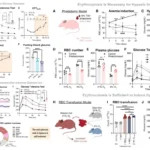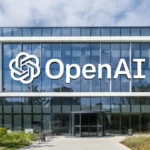Key Points:
- The University of Glasgow collaborates with Idlefield Art Lab on the solar-powered Phonoautobothy to power music events sustainably.
- The Phonoautobothy will be featured at various events and workshops in Glasgow. The project aims to replace diesel generators with solar power.
- The initiative will study how Glasgow’s cultural sector can promote sustainable practices and attitudes.
- The project supports Glasgow’s goal of becoming net zero by 2030, benefiting local artists and communities.
University of Glasgow academics are collaborating with the innovative solar-powered mobile music recording and live production studio Phonoautobothy to power a series of music events in Glasgow. This initiative aims to demonstrate sustainable power generation for music while supporting Glasgow’s ambitious net-zero goals.
The Phonoautobothy, built from upcycled materials by the Canadian collective Idlefield Art Lab, showcases the potential of renewable energy in the music industry. This project is part of the ‘Dear Green Music Scene’ initiative, led by Professor Matt Brennan and Dr. Graeme Hunt from the University of Glasgow. The Phonoautobothy will appear at events like WestFest, the Belle & Sebastian Weekender Festival, and Doors Open Days from June to September. Additionally, it will feature in workshops at the inclusive arts charity Beatroute Arts.
Live music festivals and outdoor performances typically depend on diesel generators, which harm the environment. The Phonoautobothy, however, is entirely solar-powered, capable of producing high-quality recordings and supporting live performances off-grid.
Jake Nicoll of Idlefield Art Lab explained, “Although I first created a mobile solar-powered recording studio out of necessity during the pandemic on my family farm, untethering recording technology from the grid has led to many fruitful collaborations and exciting possibilities beyond my own work as an engineer. We at Idlefield look forward to seeing the ways the Phonoautobothy will be activated in Scotland.”
Professor Brennan emphasized Glasgow’s rich musical heritage and role as a UNESCO City of Music, stating, “Glasgow’s famous live music scene provides the perfect catalyst to communicate and mobilize low-carbon behaviors across the city. The Phonoautobothy embodies our mission to drive environmental transition through dynamic creative interventions.”
Dr. Graeme Hunt from the University’s James Watt School of Engineering highlighted the environmental impact of traditional event setups, saying, “The diesel generators required for outdoor events are bad for the environment. The Phonoautobothy demonstrates that renewable energy can power even small-scale music productions and festivals. We’re excited to bring the Phonoautobothy to communities across the city.”
In addition to providing a solar-powered mobile music studio, the project will research how Glasgow’s cultural sector can influence environmental attitudes and practices within local communities. This initiative strengthens collaborations between the university and organizations like Glasgow Life and Creative Carbon Scotland.
Dr. Inge Sorensen, researching environmental sustainability in Scotland’s film and TV industries, noted that the Phonoautobothy’s applications extend beyond music: “The film and TV industry, like the music industry, relies on a carbon-intensive infrastructure with significant overlap. We now have an opportunity to help inspire industry leaders and audiences to shift behaviors around sustainability.”
By monitoring energy usage and collecting survey data, the team aims to test the viability of solar power over diesel for smaller events, potentially guiding event organizers toward more sustainable practices. The Phonoautobothy project aligns with Glasgow’s goal to become net-zero by 2030 while supporting local artists and community organizations.





